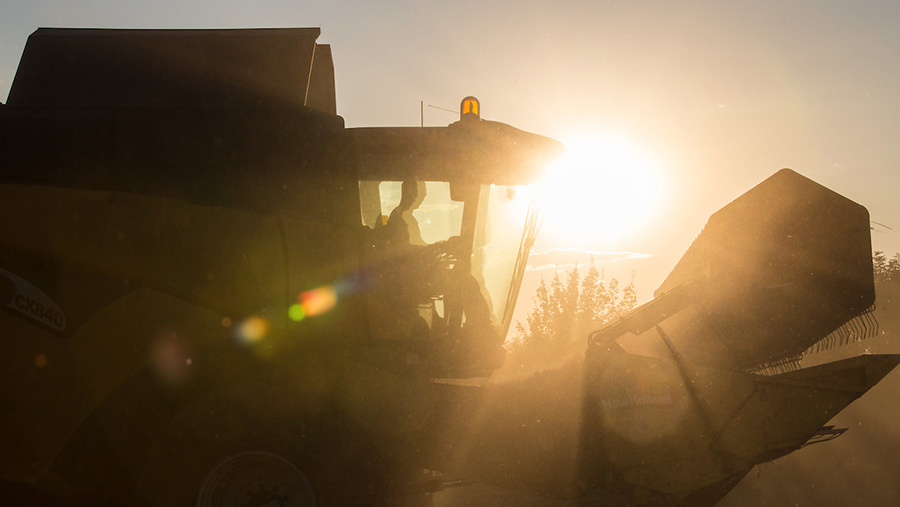Farmers warned of skin cancer risk at harvest time
 © Tim Scrivener
© Tim Scrivener Farmers are being warned about the dangers of working outdoors in the summer heat and reminded to protect themselves.
While record temperatures may be welcomed by some, it can bring big health risks such as dehydration, heat stroke, sunburn and skin cancer.
Farming is a particularly risky industry because of the long hours working outside and being exposed to sunlight.
See also: Fit2Farm: How better exercise improves wellbeing on the farm
Skin cancers
According to the Farm Safety Foundation (FSF), UV radiation is the main preventable cause of skin cancer – both the melanoma (the most serious) type and non-melanoma types.
With the sun the main source of natural UV radiation, an estimated 86% of melanoma skin cancers in the UK (around 13,600 cases) are linked to too much exposure to sunlight or sunbed use every year.
“If work keeps you outdoors for a long time, your skin could be exposed to more sun than is healthy for you,” says the FSF’s Stephanie Berkeley.
“Farmworkers, in particular, could be at risk from UV. A tan is a sign that the skin has already been damaged.”
Farmers should take particular care if they have fair or freckled skin that does not tan, goes red, or burns before it tans, she said.
Similarly, if they have red or fair hair and light coloured eyes or a large number of moles, they need to be very conscious of the danger.
In the short-term, even mild reddening of the skin from sun exposure is a sign of damage, said Ms Berkeley.
“Sunburn can blister the skin and cause it to peel. In the long-term, too much sun speeds up ageing of the skin, making it leathery, mottled and wrinkled.
“The most serious effect is an increased chance of developing skin cancer. It’s important to check your skin regularly for any unusual moles or spots.
“See a doctor promptly if you find anything that is changing in shape, size or colour, itching or bleeding.”
Summer record
With 2018 declared by the Met Office as the UK’s joint-hottest summer on record, the Health and Safety Executive has stressed it’s important for those in the rural community to avoid “complacency” during the 2019 harvest.
“Get to know your skin’s most vulnerable areas [for example, the back of your neck or head] and keep them covered,” they advised.
“Don’t try to get a tan, either – it’s not a healthy sign.
It might look good, but it indicates that the skin has already been damaged.
A suntan does not eliminate the long-term cancer risk that is associated with prolonged exposure to the sun; nor will it protect against premature ageing.
“Try to avoid the mild reddening, which is a sign of skin damage, as well as being an early sign of burning.
“Do continue to take care when you go on holiday – your skin remembers every exposure.”
Sun safety precautions
- Wear a T-shirt with a collar. Long sleeves and longer shorts or trousers can make sense, too, as clothing can be one of the most effective barriers.
- Use sunscreen with a protection factor of at least 30 with high UVA protection. Apply 20 minutes before initial exposure and re-apply at least every two hours if sweating heavily.
- Wear a hat with a wide brim or flap that covers the ears and the back of the neck.
- Put on sunglasses with UV protection – a high-quality, wrap-around pair is ideal as your eyes need protection, too.
- Seek shade. Take breaks or work in a shaded area wherever possible, particularly between 11am and 3pm, when UV rays are strongest.
Download the HSE advice for outdoor workers (PDF)
